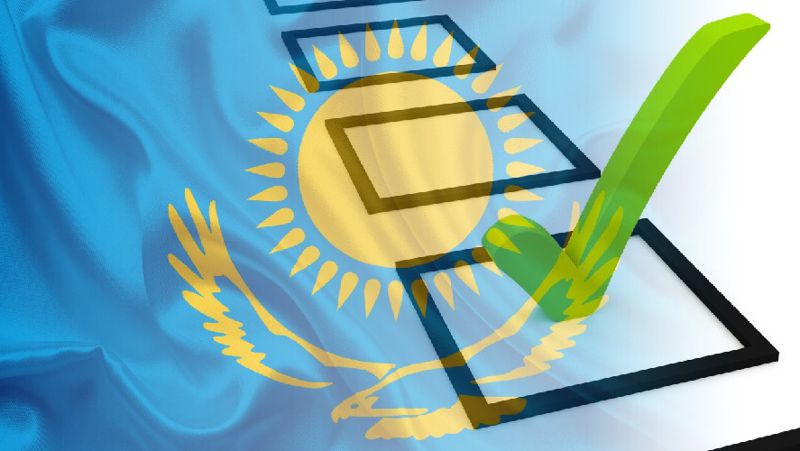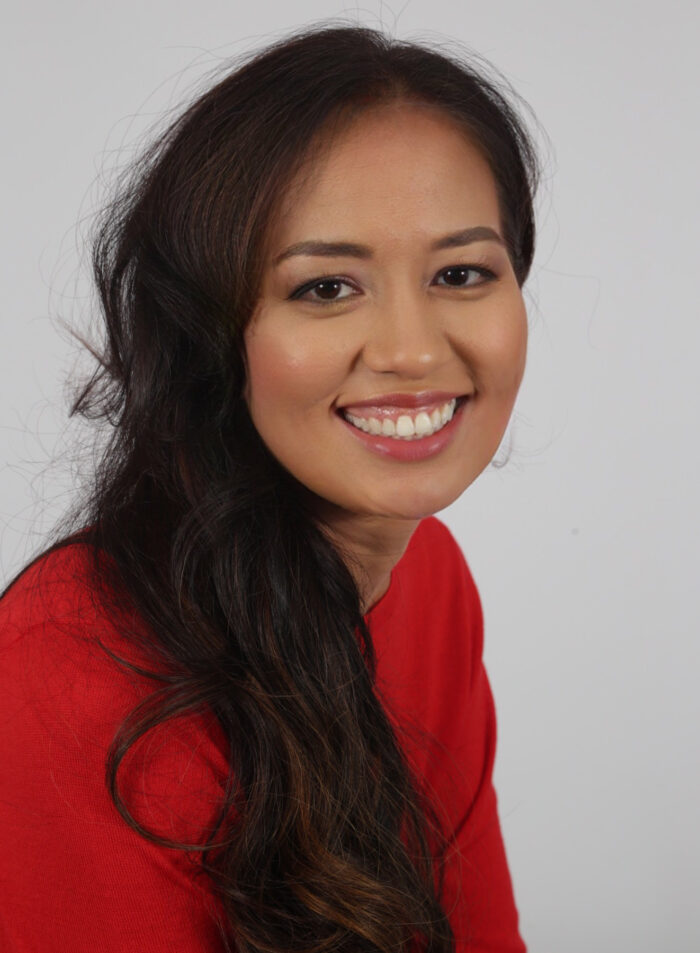Kazakhstan is preparing for an important political event – a parliamentary election planned for March 19.

Photo credit: kstnews.kz.
This date is already significant to the Kazakh people because it was on March 19, 2019, when Kazakhstan’s first President, Nursultan Nazarbayev, resigned from the post he had held for nearly three decades. Since then, Kazakhstan has had a new President, Kassym-Jomart Tokayev, a former career diplomat and politician who assumed office after Nazarbayev’s sudden departure. When actual presidential elections were held in June 2019 and November 2022, Tokayev won landslide victories in both contests. Tokayev’s focus during his years in office has been on transforming Kazakhstan through substantial political and economic reforms.

Assel Nussupova
During his first year in office, President Tokayev indicated that Kazakhstan would improve the political environment, reduce presidential powers and strengthen the role of Parliament in the decision-making process. He also promised to simplify access for opposition parties to win parliamentary representation. He ended his first year by proposing several reform initiatives at a National Council for Public Trust session. This council was launched by Tokayev in 2019 and served as a major platform for dialogue between governmental authorities and civic activists in Kazakhstan. In his proposals to the council, Tokayev raised the idea of cutting in half the number of signatures that parties must gather to register an opposition party, dropping the requirement from 40,000 signatures to 20,000. He also spoke about decriminalizing libel laws to improve the country’s freedom of the press. In addition to these measures, the President called for the liberalization of legislation about public assembly to make it easier for people to organize peaceful political protests.
In 2020, some of these ideas materialized into actual legislative changes. In addition to them, Tokayev also introduced an important structural change to the functioning of parliament by legally introducing a parliamentary opposition in the Mazhilis, the lower chamber of the Parliament. This new organizational framework allowed political parties that were not in the parliamentary majority to come up with their own agenda, propose alternative draft laws, conduct public hearings, and speak during parliamentary sessions. Changes to electoral legislation in 2020 also included establishing a quota system in which parliamentary party lists and maslikhats (local representative councils) must have at least 30 percent of women and people under 29 among their members.
In 2021, Kazakhstan held a parliamentary election. The incumbent pro-presidential party won by a large margin. The ruling party Nur Otan (known Amanat after February 2022) took 71.1 percent of the vote. Ak Zhol, the second-largest party (and the party which had formed the parliamentary opposition), won 10.9 percent.
In May 2021, Tokayev approved several key electoral changes. He decreased the threshold for parties to enter parliament from 7 percent to 5 percent. He introduced direct elections for the local akims (mayors) of small towns and villages, who were previously nominated by appointed local officials and approved by local councils.
In 2022, Kazakhstan faced a massive challenge that radically altered the framework of its political system. In January, dramatic disturbances spread across Kazakhstan, and violent political unrest shocked the country. The horrific events of January sent a roaring wake-up call to the Kazakh authorities, prompting the leadership to outline a new reform program. It had become evident the country’s population was tired of idle talk about political reforms and desired radical changes. The unrest also confirmed that a true stabilization of the political situation in Kazakhstan would only be possible if the government addressed the social and economic demands of the population.
In light of these developments, the President introduced new ideas during his address to the nation delivered in March 2022. In his speech entitled New Kazakhstan: the Path of Renewal and Modernization, Tokayev proposed radical changes that required many amendments to the Kazakh Constitution. In particular, the reforms centered around limiting presidential powers, delegating more powers to the parliament, and shifting Kazakhstan from a “super-presidential form of government to a presidential republic with a strong parliament.” The reforms also included measures such as introducing a ban on the President’s relatives holding leading positions in governmental agencies and quasi-public companies. In addition, Tokayev also proposed a ban on the President’s right to chair political parties.
In addition, the reforms sought to move the electoral system from a fully proportional system to a mixed model. In this mixed model, 70 percent of the Mazhilis members were to be selected on a proportional basis and 30 percent – based on receiving a majority of votes. In other words, the proposed change was to have 30 percent of the seats be elected by majority vote in single-member constituencies. In his address, Tokayev also offered to cut the quota for presidential appointees to the Senate from 15 percent to 10 percent. He announced the idea that the Senate should be freed from the power to alter or return legislative drafts passed by the Mazhilis. This would result in the Senate only having the power to approve or reject bills. The President also announced that the lower chamber will be authorized to approve candidates to chair the Constitutional Court (a body that replaced the Constitutional Council) and the Supreme Judicial Council. Finally, Tokayev suggested lowering the barriers to creating political parties through a 75 percent decrease in the number of signatures required to form a political party. That translated into a reduction from 20,000 signatures to 5,000. He also offered a reduction in the minimum number of members required in regional branches from 600 to 200.
The reform package, accompanied by serious constitutional amendments, was approved by 77 percent of voters in a referendum held in June 2022.
Although there are still some debates on the rushed character of the referendum and the adopted amendments, there can be no doubt that they represented an attempt at actual change. They were part of the government’s efforts to respond with tangible reform when it became clear that Kazakhstan needed measures to reduce presidential powers and encourage political pluralism and competition.
On Jan. 19, when Tokayev dissolved the lower chamber of the Parliament, he announced an upcoming election planned for March 19. This election is a significant step in the path of reform President Tokayev is laying out to confront the vast domestic and international challenges Kazakhstan is currently facing.
President Tokayev believes the new electoral cycle will reset the political system. The election “will give new impetus to the comprehensive modernization of the country.” According to his recent statement, the soon-to-be-held parliamentary election is a logical continuation of the constitutional reforms enacted in 2022, when violent nationwide unrest pushed authorities to develop a comprehensive program of economic and political reforms.
There is hope that the upcoming parliamentary election that will be held under the new, mixed electoral system will bring change and facilitate democratization and political liberalization in Kazakhstan. This time, 70 percent of the candidates to the lower chamber will be elected via party lists, and the remaining 30 percent will be elected in their districts. This means that independent candidates may get a chance to be elected after a long while. The election will also feature two new parties — the green party known as Baytaq and the center-right Respublica Party (both of whom have candidates who will likely win several seats).
There is hope that in the future, Kazakhstan will truly progress towards greater political liberalization and the establishment of a stronger parliament. The reforms proposed by President Tokayev are promising. They can serve as a solid basis to create a truly multi-party system, help implement effective oversight mechanisms and enhance accountability across different levels of the Kazakh government.
The events of January 2022 not only reshaped the approach toward meeting the needs of the Kazakh population but raised new and serious questions about the country’s social and economic policies. Building a more democratic political system would go a long way to showing the people of Kazakhstan, currently frustrated with falling living standards and empty political pledges, that a better future is possible. The upcoming election will be the first real test of Kazakhstan’s commitment to democratic changes. Only time will tell if Kazakhstan, and its reform-minded President, will pass that test.
The author is an analyst with a Master’s Degree in Economics from Georgetown University in Washington, DC, and more than 20 years of experience working for the Kazakh government. She focuses on macroeconomics, commodity, and financial markets, and economic and social policies in Kazakhstan and globally.

